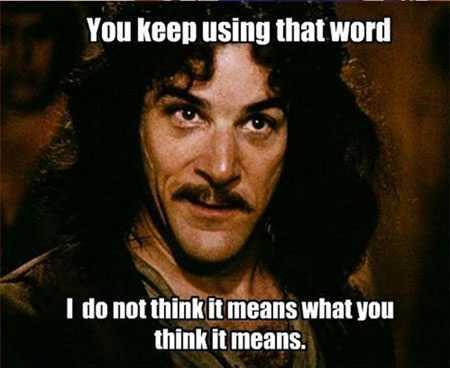If only you knew… plain text
Things web developers do that could ease your pain
Plain text
TL;DR It’s simple and robust, it has no vendor lock in and is prerequisite and gateway for good things described later.
Plain text is great. It’s plain and it works. Ever found yourself swearing at Word because you worked on a document for a couple of hours and suddenly like a gremlin fed after midnight it started acting crazy and smashing all your stuff up with rogue formatting and pencil cross-bows? Yes that’s right, it happens to everyone and it’s a waste of time. That doesn’t happen with plain text.1
No one ever lost an hour trying to figure out why the third paragraph in a plain text document was coming out all italic comic-sans and 10 points larger.
Plain text avoids ‘vendor lock-in’. Not an illicit after-hours drink, but the act of pouring every drop of your hard work into a Word document, a format that you have to pay to open. Think about it. That document you wrote with the perfect combo of hyperbole and vision that’ll see the company to market dominance. Yeah, you gonna have to pay for a license to open that next time you get a new computer. That’s pretty odd. You did the work, but you don’t really have the right to look at it, without paying someone first. You could say “oh whut, but everyone has Word so it’s not a problem” or “what about Open/Libre/BackOriffice”, but you’d be missing the point.
Wherever possible, capture your ideas in plain text. Read up about Markdown. It’s a standard for writing plain text that means you can automagically turn them into HTML. HTML documents beat Word documents every time; if you have an interweb connection, you probably read a bunch of them before breakfast or firing up anything you think of as a computer.
Word documents are a storage format for bad CV’s. A Word doc is editable. It’s your source code, not the finished article. Just because it’s contrived enough to look a bit like a page of paper, and it has all your text on it does not mean it’s the artifact of your labour that you should pass on.
If you want the recipient to read your work, send them something that they can read easily but not edit; a PDF or better still a link to an HTML document that you auto-magic’d from a Markdown document.
If you just need to communicate some content, or an idea, send them plain text. If you’re on the same team, the overhead of additional formatting isn’t adding anything apart from hours in your life spent working.

If you need to collaborate on a big chunk of prose-based work and you’re about to start emailing Word documents back and forth, stop. Just stop… How many times have you done this? How many times have you ended up with more versions of the document than the number of ideas it actually expresses? How many times have said ideas been lost by the simple and almost inevitable act of working on the wrong version of the doc? Ok. Are you sitting down? Yes?… …This may come as a surprise but, there is a better way.
Right now you’ve got at least 2 obvious solutions:
-
A shared googledoc… It can track changes, and you can use the margins to flirt about the best bits to bold all you like. It’s still a weird simulacra/homage chimera of a Word doc, but it’s at least a single shared editable resource, which I believe is what you said you were after.
-
Plain text and version control. An awesome solution, with the one drawback that it’s apparent simplicity masks a velociraptor of complexity that’ll fold your mind into a party hat and leave you with no tears left to cry. As if as a warning, the version control system du jour is called Git. It’s great, and it will kill again. So yeah, maybe stick to a googledoc, or better still, do use plain text and version control, but be safe, and cover it with this: http://gist.io/ or this: http://prose.io
I can see that after sitting you down and telling you that emailing Word docs was more dangerous than chainsaw juggling, you were hoping for more of a worked example all up in here. We’ll come back to it later, but hopefully you get the theory. Try not panic in the meantime, I’m sure it’ll be fine.
Coming up next:
- Separation of concerns: Do not put that in there.
- Monitor and tweak: Fact based decision making or you’re a shaman.
- Version control: Sharing, Merging and Blame-storming.
Footnotes
[1] We could get into an argument about character encodings, but then I'd know you're a web developer and this article isn't for you. Also, what are you doing arguing against plain text? Get off my lawn ya looncake.
